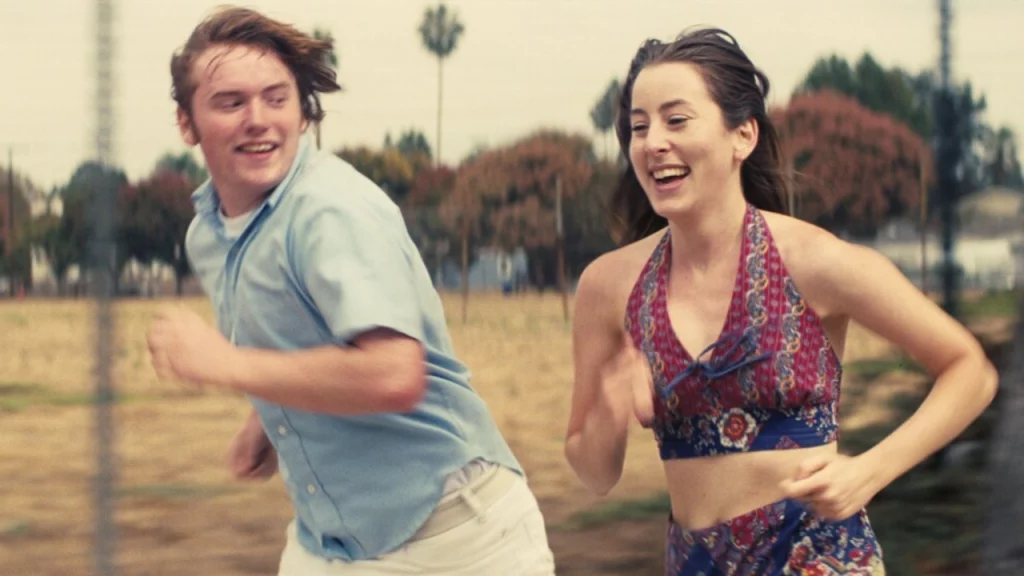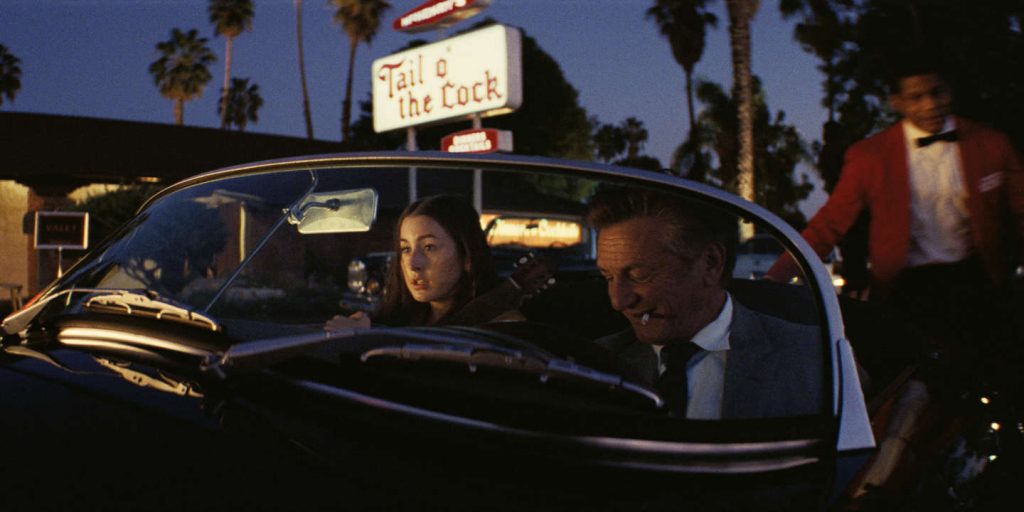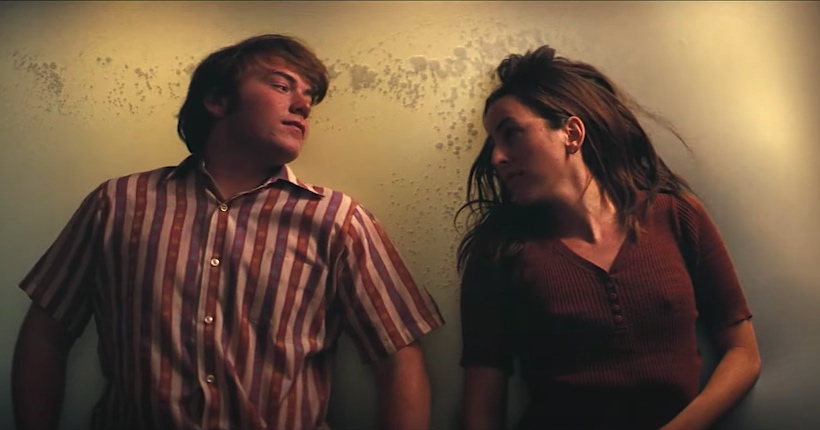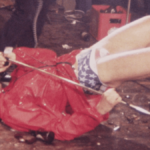With a name like Licorice Pizza, it’s perhaps unsurprising that Paul Thomas Anderson’s latest feature has divided people’s tastes. However, when I returned home from the cinema and searched the World Wide Web for affirmations of my distaste, I was met with a surprising lack of slanderous reviews, with most of the backlash coming from the ever-turbulent twittersphere. Genuinely confused, I trawled through endless embellishing articles and cult-of-PTA fan pages to understand why this flick was such a hit for so many. The words nostalgia, beautiful, heartfelt appeared again and again, all of which aren’t necessarily untrue descriptors, but they certainly weren’t the adjectives running through my mind.
The film follows the somewhat wacky misadventures of larger than life 15-year-old child actor Gary Valentine (Cooper Hoffman), and directionless but witty 25 year old Alana Kane (Alana Haim, of Haim fame). Against the backdrop of 1973 LA, the two undertake various fittingly nostalgic business ventures after Gary initially pursues the older woman, who half-rejects him, half-leads him on like a hungry (or horny, you decide) dog with, in my opinion, dubious motives. Is she seeing dollar signs in Valentine’s budding entrepreneurship? Has she got a thing for chubby teenagers with bad skin? Or is she so lost and lonely that she’s willing to get the attention she desires from a child? The whole affair isn’t charming, it’s depressing.
With celebrity cameos a-plenty, all based on real people, Licorice Pizza makes itself up of various inconclusive stories which help our protagonists realise their feelings for each other, ending, of course, with a nice smooch. I like this style. Only she’s ten years his senior, and he’s a child. I know the 70s was perhaps a little iffy when it came to stuff like this, but such an age gap seems gratuitous. Does it really add anything to the story? You really couldn’t have made her a little younger, Paul? Or Gary a little older? The film seems to jokingly acknowledge the weirdness of the gap, Alana asking her sister “Do you think it’s weird? That I hang out with Gary and his fifteen-year-old friends?”, to which she gets apathetic, stone-faced silence as a reply. If this is meant to be an endearing moment for Alana and her strange situation, it seems more like a sign of her fragile mental state.

A particular scene comes to mind. Alana, in Gary’s employment as a salesperson for his new waterbed company (did I mention nostalgia?), makes a sale by vigorously flirting with the mug on the telephone, all whilst staring directly at the lustful teenager. She’s aware of her sex appeal in their supposed platonic friendship, and revels in making Gary pine over her to no avail, his attention making her feel mature and in control. How quirky.
Aside from the creepiness, I found the relationship between this mismatched pair to be boring and repetitive, their arc more of a zigzag. With each zig there’s a series of miscommunications and inflammatory actions resulting in jealousy and distance. And each zag is their slow-motion running back toward each other for redemption. The cycle repeats several times, with each of the running zags making me feel as though I’m at a rave, with the MC telling the crowd to ‘GO FUCKING MENTAL!’ for the twentieth drop of the night. Although, in fairness to Anderson, the very last of these runs, where split-screen is used to splice in the previous runs, was much appreciated by this viewer. Although I can’t help but feel as though all of the previous running shots were shoehorned in purely for this moment of cumulative effect, making them seem, upon reflection, pompously stylistic and superfluous.
Thankfully, Haim and Hoffman’s performances were lively and convincing, despite this being the acting debut of both. Also, there’s a host of well-written characters and dialogue to be found throughout, although I found myself sensing a certain hyperawareness on the part of the writers of the wittiness of their dialogue. This makes for a couple of excruciating milliseconds after certain one-liners, where it almost feels like Anderson is looking you in the eye and saying ‘Yeah, you’re laughing right nor aren’t you, lapping this up. God, I’m fucking incredible at writing movies.’ Honestly, I don’t know how he did it; I’ve never felt so miffed by good lines, especially when they’re one of the few saving graces of a film.

I don’t want to come off as a sourpuss, so I should mention that the cinematography was excellent. Licorice Pizza’s photography evokes the atmosphere of the San Fernando Valley in the midst of the 70s oil crisis both realistically and caricaturally, as Anderson is famous for having done in Magnolia, Boogie Nights, and Punch-Drunk Love. I’m sure much of the audience had their hands clasped in delight as sentimental flashbacks ran through their minds. But, being born in 2000, that aspect was lost on me. Similar to Tarantino’s Once Upon a Time in Hollywood…, I can’t forgive a mediocre film on the basis of its nostalgic atmosphere and depictions of legendary celebrities. There’s only so many times one can point to the screen and go ‘Look! It’s him! That actor playing that other, older, now-dead actor!’
I am, admittedly, being too harsh. The film is enjoyable, and my profound irritation has stemmed, more than anything else, from its reception —PTA diehards tripping over themselves to tell me why the relationship isn’t illegal, it’s actually incredibly beautiful and platonic but also romantic and quirky and so on and so on. But it’s a nice film to chew on, and I did ultimately find myself invested in the characters, albeit mostly via my anger. The cameos were fun, and the the film didn’t take itself too seriously. I would advise anyone to go see it, even if only for the inevitable amusing arguments with friends about its merits and flaws. I suppose my issue is that I truly hate liquorice.
Licorice Pizza is currently showing in UK cinemas. You can watch the trailer here:





